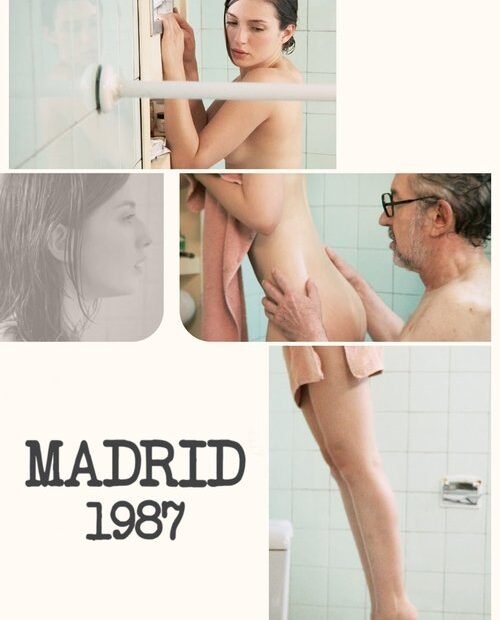Madrid, 1987: A Love Story for the Ages or Just a Really Long Conversation?
Picture this: it’s 1987, Madrid is bustling, and there’s a journalist who’s seen more of the world than he probably cares to admit. Enter the young student, fresh-faced, idealistic, and likely too caffeinated for her own good. The two meet in a smoky apartment that looks like a set piece from a play about existential dread and bad decisions. What could possibly go wrong?
Our seasoned journalist, played by the ever-charismatic José Sacristán, is a man who has lived through the Franco regime and is now navigating a world that is as confusing as a Rubik’s Cube at a rave. He’s cynical, world-weary, and has a penchant for philosophical debates that would put Socrates to sleep. Meanwhile, the young student (the delightful, if a bit naïve, character portrayed by María Valverde) is ready to take on the world, armed with nothing but her youthful enthusiasm and a handbag that probably contains a lot of notes and a sandwich or two.
The plot thickens like a good Spanish stew when these two unlikely companions find themselves in an apartment, engaging in what can only be described as a masterclass in verbal fencing. They discuss everything from politics to personal desires, with the kind of intensity that makes you wonder if they’re about to start a revolution or just argue about who gets the last churro. Spoiler alert: it’s mostly the latter.
As the evening progresses, the conversation shifts from the political landscape of Spain to the more personal territory of love, desire, and the inevitable awkwardness of attraction. It’s like watching a slow-motion train wreck where you know they’re going to crash into something profound, but you’re not quite sure what that something is. And when it finally happens, it’s both awkward and romantic, like a badly choreographed dance in the middle of a crowded plaza.
Amidst the politically charged atmosphere of the time, it’s hard not to feel the weight of the world pressing down on their shoulders. They’re not just discovering each other; they’re discovering themselves and the complexities of their desires in a society that’s still figuring out what it wants to be. The dialogue is sharp, witty, and occasionally makes you question your life choices – which is always a good sign of quality cinema.
In the end, Madrid, 1987 is less about the romance and more about the conversations that make you think, “Wow, I really should read more books.” The two characters leave us with a bittersweet taste, as they come to terms with their own realities and the impossibility of their situation. But hey, at least they had a night filled with deep discussions and awkward flirting, which is more than most of us can say after a night out.
So, if you’re in the mood for a film that’s part love story, part political commentary, and entirely filled with enough dialogue to make Shakespeare proud, then give Madrid, 1987 a watch. Just don’t expect a happy ending – unless your idea of happiness involves a lot of unresolved tension and a hint of melancholy.
